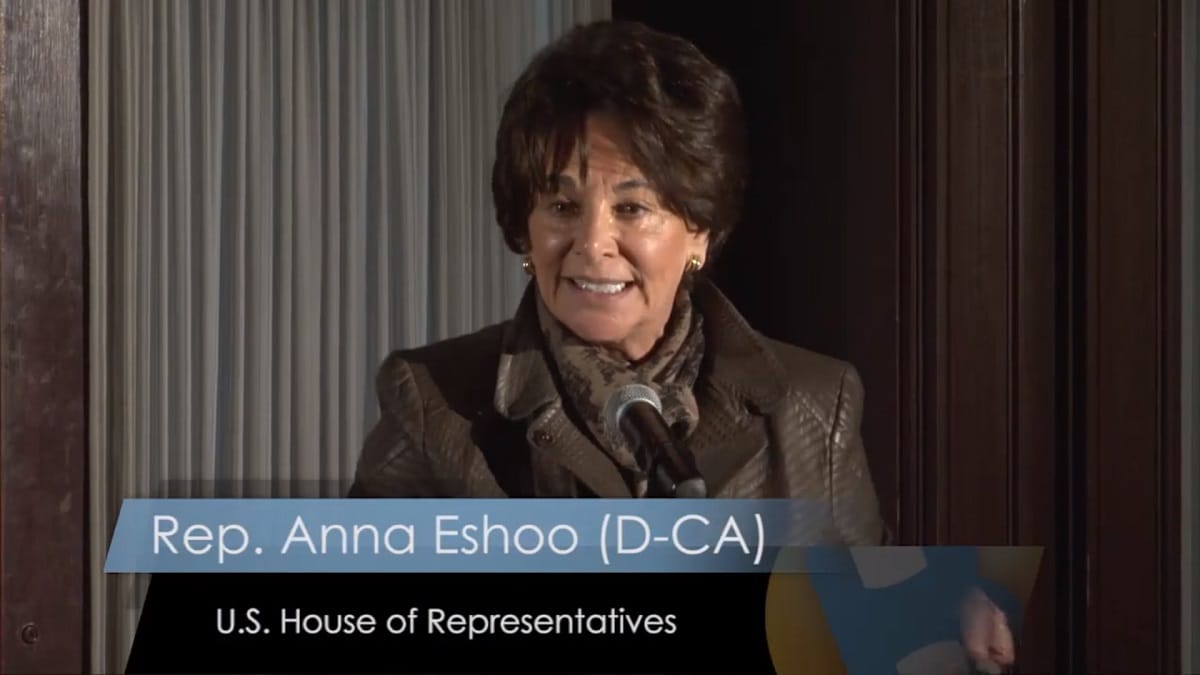Democrats Want Biden to Drop Net Neutrality Suit Against States, AT&T and Digital Divide, Cornell’s Broadband Program
January 15, 2021 –Representative Anna Eshoo, D-California, led a group of Democratic members in the House of Representatives in writing a letter urging the incoming attorney general, Merrick Garland, to withdraw the Department of Justice from the lawsuit currently filed against California for the st

January 15, 2021 –Representative Anna Eshoo, D-California, led a group of Democratic members in the House of Representatives in writing a letter urging the incoming attorney general, Merrick Garland, to withdraw the Department of Justice from the lawsuit currently filed against California for the state’s net neutrality law, once he takes office next week.
The California Internet Consumer Protection and Net Neutrality Act of 2018 prevents internet service providers from throttling speeds and blocking legal websites to consumers, among other things.
When California passed the law in 2018, it almost immediately faced objections from the federal government and private entities. The initial lawsuit was put on hold until Mozilla v. FCC was decided, but was renewed in August 2020.
There is a hearing scheduled on January 26 for a request of the injunction while the lawsuit is active, which would prevent the state of California from enforcing the law until the lawsuit is resolved.
AT&T commits to bridging the digital divide as a top priority in 2021
AT&T’s Joan Marsh, executive vice president of federal regulatory relations, in a post on Wednesday committed to increasing broadband connectivity across the United States as one of the company’s top priorities in 2021.
“No child should get left on the wrong side of the digital divide,” Marsh said, reporting that 17 million children across America did not have access to online learning in 2020, at a time when many schools were closed due to the COVID-19 pandemic.
Marsh listed four specific things government, with the industry’s cooperation, can do to bring high-speed internet to every American:
- Improve broadband mapping to identify where there are gaps in high-speed availability. In December 2020 the Federal Communications Commission were appropriated $65 million as part of the $7 billion allotted for broadband-related spending.
- Modernize the FCC’s Lifeline program, which subsidizes funding for phone service to qualifying low-income households. Marsh encourages the Lifeline program to allow participants simpler methods of enrolling, similar to the Supplemental Nutrition Assistance Program.
- Implement equal importance for both wired and wireless broadband technology, with the increasing speed and availability of wireless broadband.
- Establish solid frameworks for policy to ensure funding for broadband programs like Lifeline.
Cornell University launches new broadband program
Cornell University is launching the new Cornell Broadband Network, a program aiming to create a community of university faculty, students, and more who are doing research and projects in broadband technology, accessibility, and affordability.
The program is intended to highlight efforts made in the broadband field, encouraging new partnerships and collaboration among different groups.
CBN has a website with news, events, a blog with invited submissions, a newsletter, and other information resources for people working in the broadband field.
CBN will also host a monthly Zoom event discussing different aspects of broadband. Their first event is scheduled for Friday, January 29, at 8:30 am ET, with guest speaker Todd Schmit, associate professor in the Dyson School of Applied Economics and Management at Cornell. The event will cover the feasibility of rural utility cooperatives expanding into broadband, which Schmit has worked on for the last couple of years.










